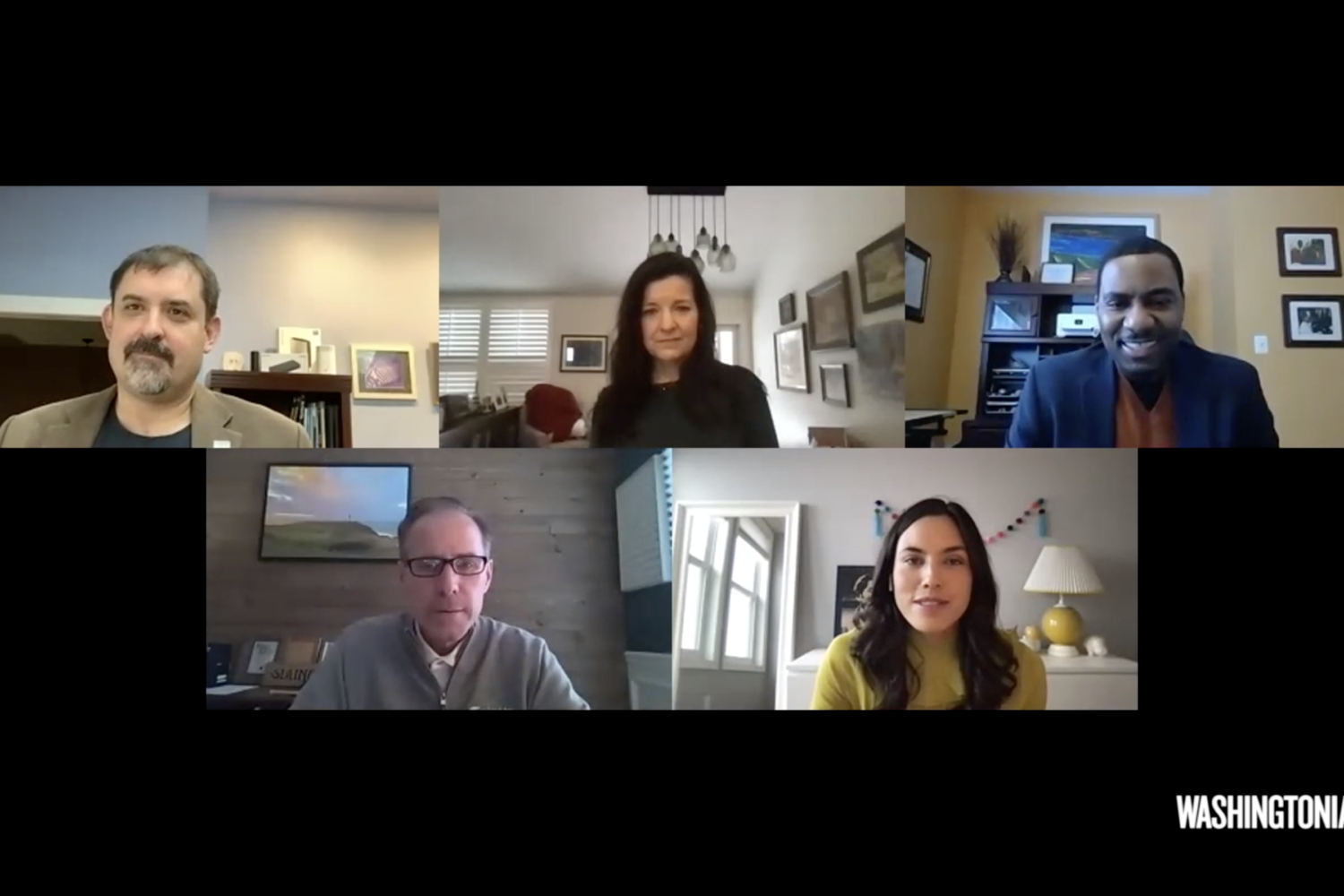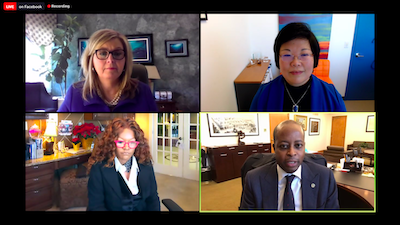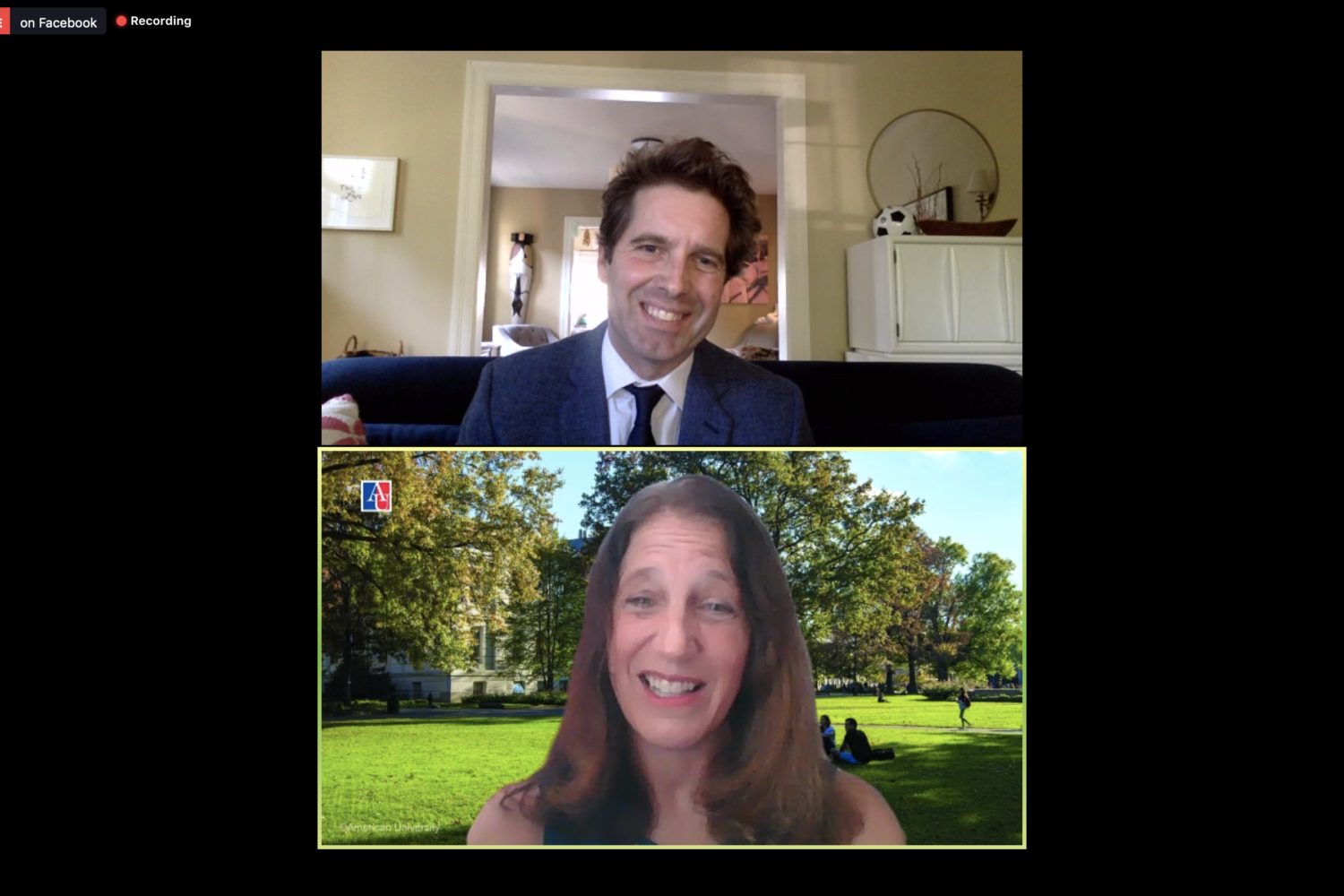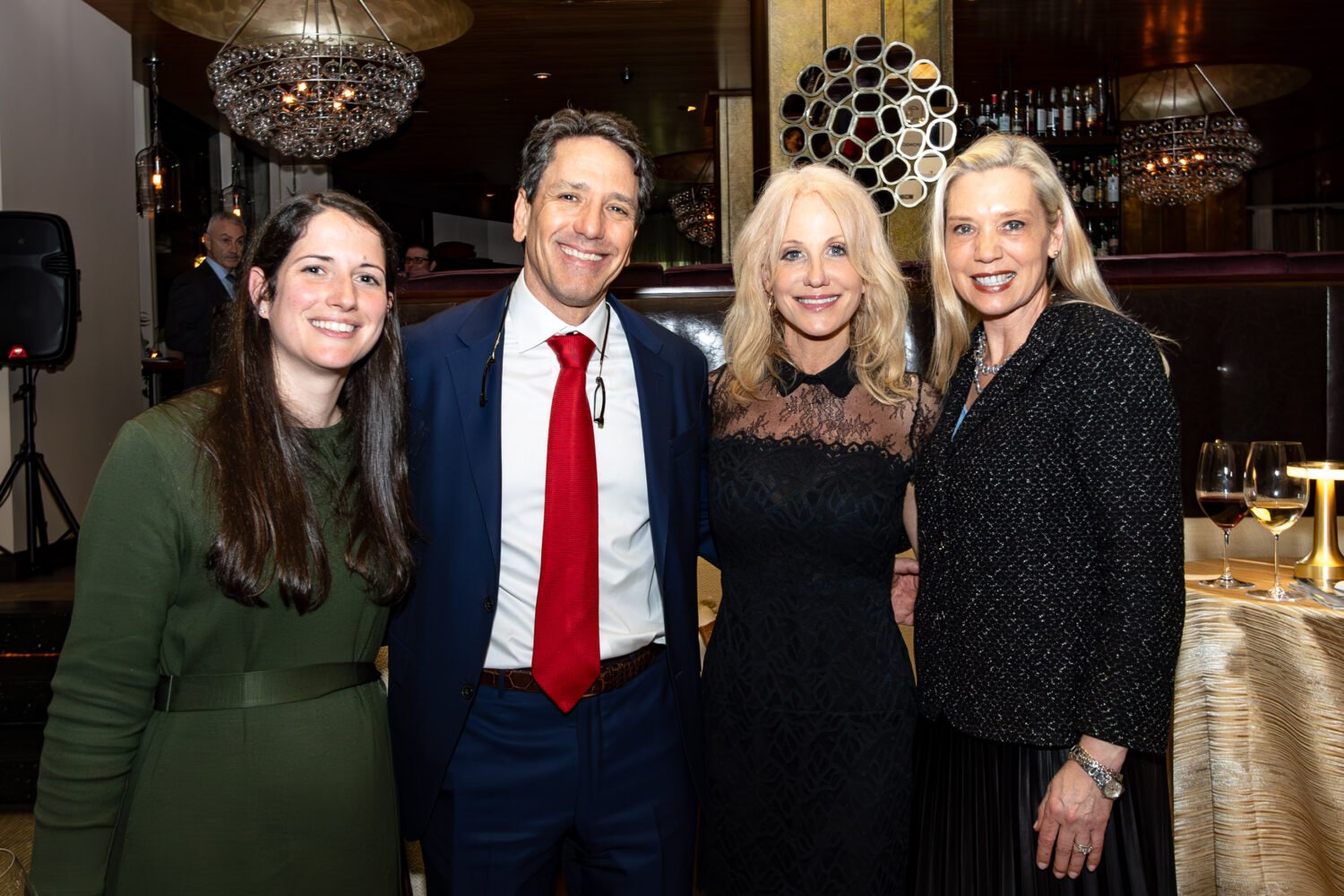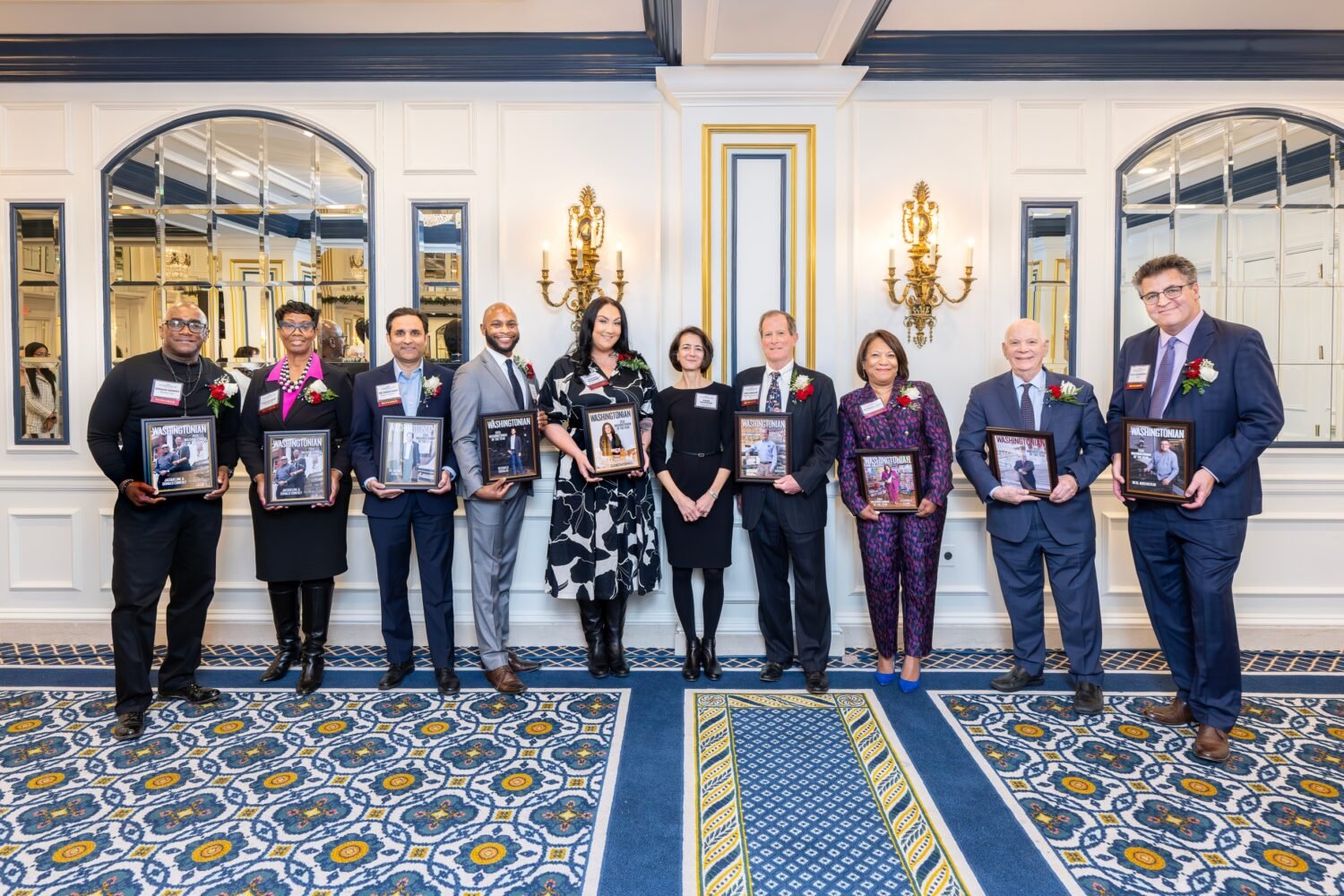As jobs continue to be scarce throughout the ongoing pandemic, the tech sector has seen a boom in available positions that require particular skills. On Thursday, February 11, 2021, Washingtonian hosted a conversation, sponsored by Amazon Web Services, with public and private sector leaders that explored ways to ensure that those currently out of work can access these jobs through retraining and upskilling.
The event kicked off with an interview with Senator Mark Warner (D-VA) hosted by Cathy Merrill, President & CEO of Washingtonian. The conversation focused on the work at the federal level to incentivize organizations to invest in retraining for the available workforce. Senator Warner referenced a three part report he has been releasing that focuses on investing in workers. “I think what COVID has done is accelerated the move to a digital economy by about a decade within the last year, ” Sen. Warner said on the state of the workforce today. “A whole series of jobs, often lower skilled jobs, that we all kind of knew over a decade would be eliminated have been eliminated within the last year.”
“We do need to change and put an incentive for a business to invest in human capital,” Sen. Warner continued. “I’ve proposed the equivalent of an R and D tax credit…let’s make the R and D tax credit available for those companies that will increase their training. And I would skew this towards low and middle income people… The company puts the worker through the community college to get a certificate, and if they spend those dollars, they ought to get a tax credit rather than simply a business expense.”
The event continued with a panel discussion that included insights from Elizabeth Lindsey, Chief Executive Officer of Byte Back and a Washingtonian Tech Titan, Kim Majerus, Leader of Education, State and Local Government at Amazon Web Services, and Sonu Singh, Founder & Chief Executive Officer of 1901 Group, a Leidos Company. Each of their roles are crucial in developing appropriate training options and bringing it to those who need them.
“There are vast amounts of data that points to a future workforce with cloud computing skills as the top skill that LinkedIn has posted for the past 6 years,” said Majerus. “For us at AWS, that’s top of mind because we need to continue to evolve and build that community.” In her particular role, Majerus has been focused on creating infrastructure where talent is built on a state and local levels with partnerships across community and four year colleges alike.
“Byte Back trains adults in the DC region as well as in Baltimore. We provide them with training in foundational technical skills and help them get more advanced skills to help them to move into careers in IT or help them with general office skills so they can move on to cloud computing [or] software engineering,” Lindsey explained. “What we find is that the same types of inequity we see across the economy are really heightened when it comes to the digital divide. Low income folks, folks of color, or older workers are much more likely to be the individuals losing these jobs and really need these skills.”
“There’s talent all over this country that hasn’t had the access that other folks have had. That doesn’t mean that they are less smart, less capable or less loyal, it just means that they haven’t had the opportunity,” Singh explained of his organization’s focus on creating training and jobs in rural areas. “My thesis was that there was a lot of talent and we should start an organization–a business– that serves government and taps into that talent.” Through his work over the past 10 years, Singh and 1901 Group has worked closely with government allies to understand the talent landscape available and create opportunities that fit them.
If you’re looking for more information on reskilling resources from Amazon Web Services, please click here.
Thank you to AWS for supporting this conversation! Missed it? You can watch the full conversation below:









